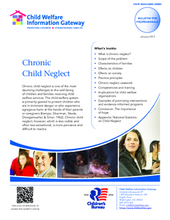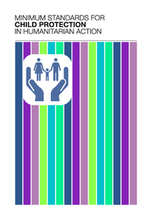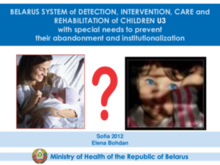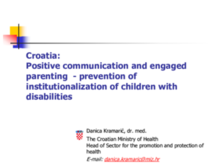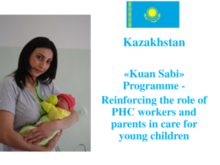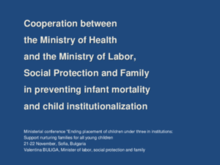Displaying 411 - 420 of 525
The Psychological First Aid Training Manual for Child Practitioners (PFA) was developed by Save the Children Denmark for the Child Protection Initiative, to facilitate training in psychological first aid with a focus on children.
This Child Welfare Information Gateway bulletin for professionals in the US discusses what chronic neglect is and reviews ways to work with families experiencing chronic neglect, including critical elements of successful casework practice, examples of what agencies are doing, and ways agencies can integrate child welfare approaches to chronic neglect with prevention and early intervention efforts.
This article focuses on the structural similarities and dissimilarities that exist between child protection systems in France and Switzerland, as exemplified by the evolutions of the last decade.
This excellent article explains the process through which indicators of family care for (child) development were drafted and tested in several countries.
The Minimum Standards for Child Protection in Humanitarian Action were formulated in 2011-2012 by the Child Protection Working Group (CPWG), an inter-agency working group composed of child protection practitioners, academics, and policy makers working to support child protection work in humanitarian settings.
In its Annual report (2011-2012), the Indian Ministry of Women and Child Development reports on progress in the implementation of the Integrated Child Protection Scheme (ICPS), a new policy and programmatic strategy that specifically articulates the need to move away in approach and services from over-reliance on institutional care and towards responses that support family based care.
This presentation to the 2012 Sofia Conference introduces social services available in Belarus for the identification, intervention, care, and rehabilitation of children under the age of 3 with disabilities, in order to prevent their abandonment and placement in institutions.
This presentation to the 2012 Sofia Conference by Danica Kramarić, Head of Sector for the Promotion and Protection of Health, Croatian Ministry of Health, introduces how positive communication and engaged parenting are key deterrants of the placement of children with disabilities in institutions.
This presentation to the 2012 Sofia Conference by the Kuan Sabi Program, in Kazakhstan suggests ways to improve the knowledge and skills of Primary Health Care workers that care for children under the age of 3.
This presentation to the 2012 Sofia Conference by Valentina Buliga, Minister of Labor in Moldova, Social Protection and Family, introduces Moldova's ongoing collaboration between the Ministry of Health and the Ministry of Labor to reduce infant mortality and the placement of children under the age of 3 in institutions.

